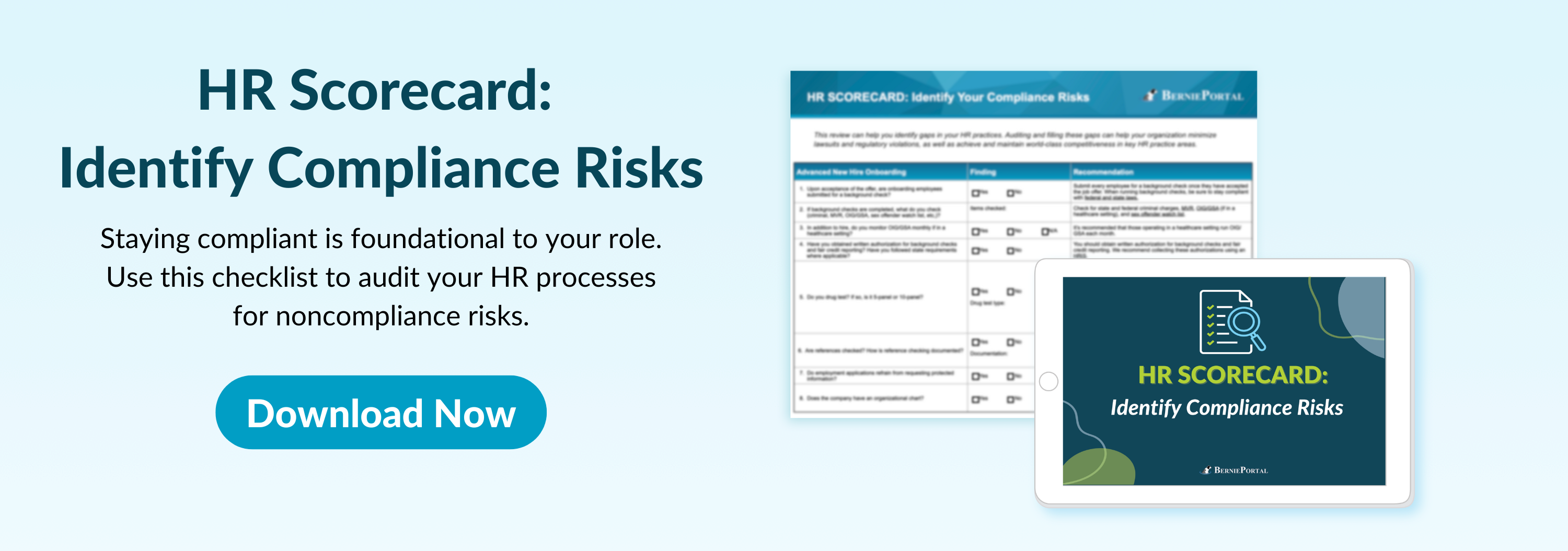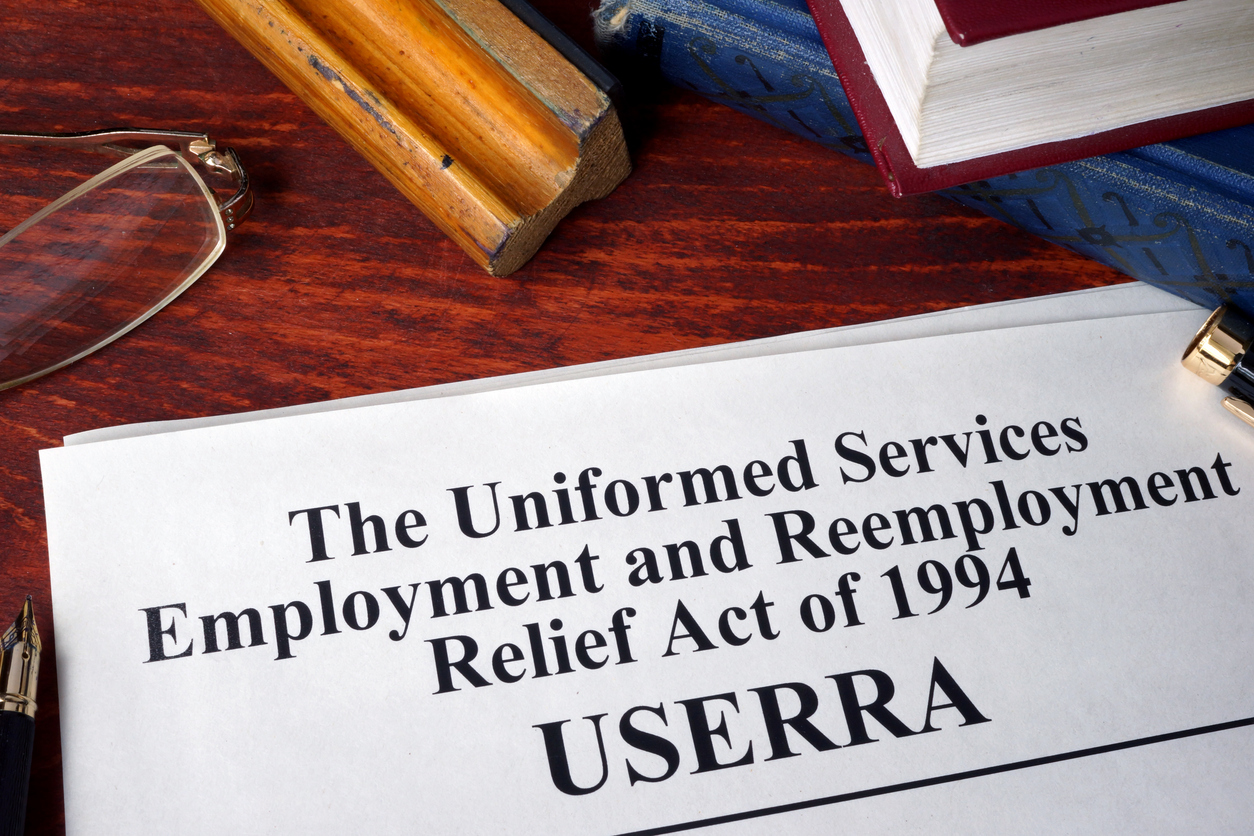
Written by
Aidan Farrish
Aidan is an aPHR-certified writer on the marketing team at BerniePortal. She writes about HR, healthcare, and benefits.
Biden Signs Speak Out Act: NDAs and Legal Compliance

Update: President Biden signed the Speak Out Act on December 7, 2022.
The Speak Out Act has passed the House and the Senate and is heading to President Biden’s desk, where he is expected to sign it. This act affects nondisclosure agreements due to sexual misconduct, such as harassment or assault.
But how does this act affect human resources, and what are the long-term implications of an act like this being passed?
Read on to find out how the Speak Out Act affects HR pros and organizations, plus strategies to stay compliant.
What Is an NDA?
An NDA is a nondisclosure agreement between an employer and an employee. These usually cover what an employee can share about their job—their role, information about internal processes, developments, financial data, etc. NDAs—like noncompetes—are commonly used to prevent employees from joining competitors and sharing potentially sensitive information.
NDAs are sometimes used to enforce policies involving workplace culture. They have been used to make sure employees don’t spread details on harassment or mistreatment from colleagues or superiors.
The Speak Out Act and Compliance
The Speak Out Act makes pre-dispute NDAs unenforceable. This means NDAs signed when an employee is first hired that pertain specifically to sexual misconduct will no longer be enforceable.
If an employee signed an NDA upon hire that prohibits them from telling colleagues or others about sexual misconduct they may experience in the workplace, this act will enable them to speak out without any legal repercussions.
This does not make a new hire’s NDA involving sexual misconduct illegal, but it does void such agreements. If your organization has a similar NDA, you aren’t breaking the law by having it—but you can no longer legally enforce that clause.
This act doesn’t apply to NDAs signed after a legal dispute, it only makes pre-dispute NDAs unenforceable. So if an employee or former employee was engaged in a lawsuit with their employer and agreed to sign an NDA as part of a settlement, they must still abide by the rules of that NDA.
Some states already have laws like this in place. In New York, lawmakers went a step further in 2018, making it unlawful to forcibly include an NDA in a legal settlement, agreement, or resolution involving claims of sexual misconduct, unless the complainant desired an NDA. In 2019, New York altered this law to include NDAs involving any kind of discrimination against a protected class—people identifying as a specific sexuality, gender, religion, or of minority status.
For HR pros, this act and others means taking a close look at your onboarding documents. While many organizations don’t have an NDA that concerns sexual misconduct, it doesn’t hurt to evaluate the legality of what you do have. New York isn’t the only state furthering legal protections for employees from potentially harmful NDAs, and with the federal passing of the Speak Out Act, you may see more states taking the initiative.
Methods for Preventing Noncompliance
Protecting your organization from potential legal issues can be as easy as building an inclusive culture. Create a healthy and sustainable culture so employees of any kind can interact with one another and with their managers on even footing, and will still feel supported in cases of misconduct.
In mandatory reading documents like a Culture Guide, employees will learn the ins and outs of your organization, from preferred methods of communication to managing workplace conflict. Consider using a Culture Guide in your onboarding process and as reference material for new and existing employees to use to guide their behavior and set reasonable expectations.
A streamlined onboarding process audit can help you double-check that any NDAs present are up to date with new legal requirements. Having an all-in-one HRIS can help you keep track of your own documentation in the applicant hiring cycle.
Legal compliance can be tricky for any HR pro, so keeping yourself current with new laws and how they affect your organization is critical to your continued success.
Additional Resources
You can stay informed, educated, and up-to-date with important HR topics using BerniePortal’s comprehensive resources:
- BernieU—free online HR courses, approved for SHRM and HRCI recertification credits
- BerniePortal Blog—a one-stop shop for HR industry news
- HR Glossary—featuring the most common HR terms, acronyms, and compliance
- HR Guides—essential pillars, covering an extensive list of comprehensive HR topics
- HR Party of One—our popular YouTube series and podcast, covering emerging HR trends and enduring HR topics

Written by
Aidan Farrish
Aidan is an aPHR-certified writer on the marketing team at BerniePortal. She writes about HR, healthcare, and benefits.
Related Posts
On April 15, 2024, the U.S. Equal Employment Opportunity Commission (EEOC) issued a final...
In 2023, LeRoy Torres, an army reservist and Texas state trooper, was awarded $2.49...
The Office of Federal Contract Compliance Programs (OFCCP) defines Affirmative Action as...
Imagine how difficult and frustrating it would be if you didn’t get paid for a day, a...








Submit a Comment